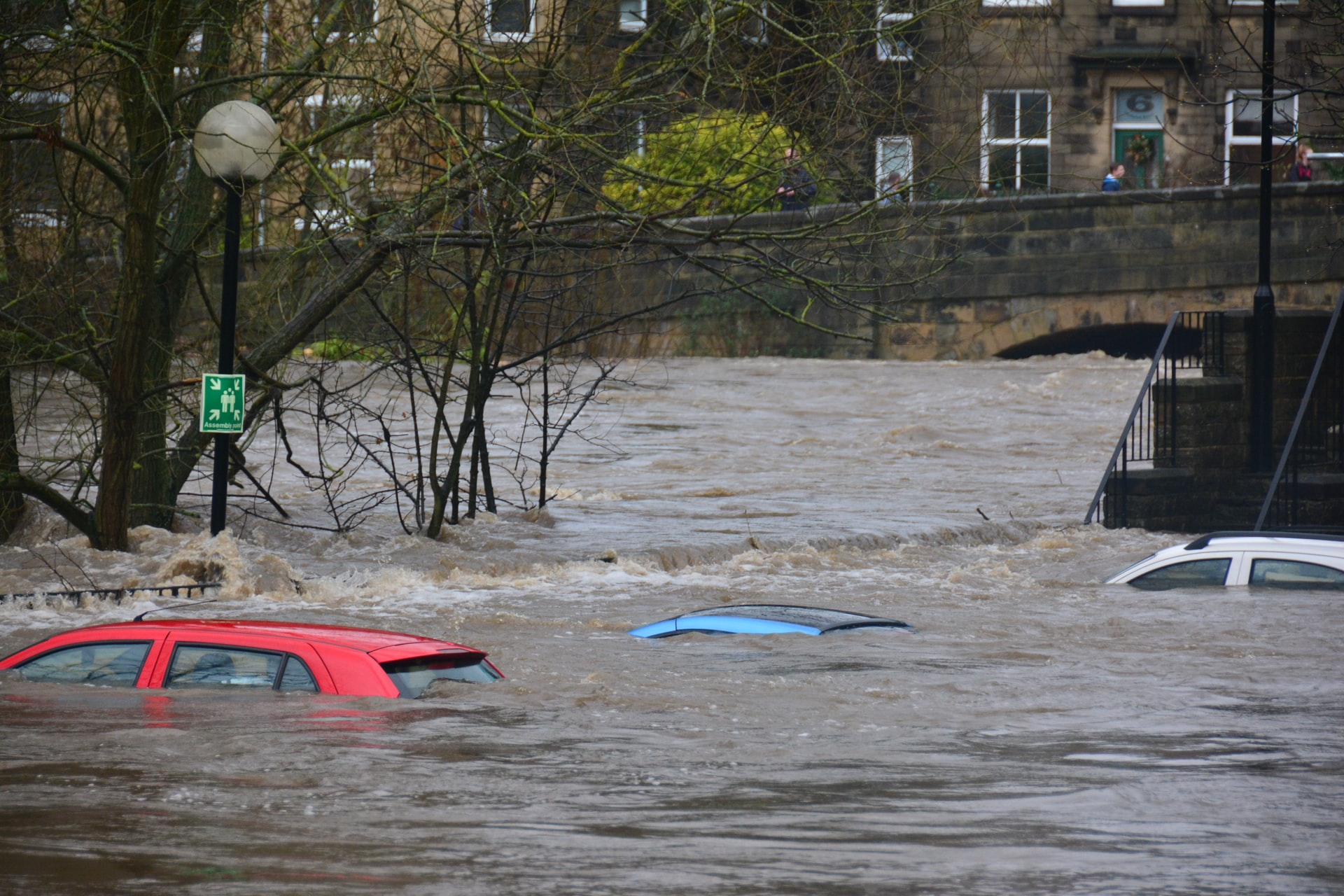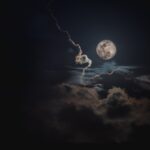by Nicole Yurcaba

As someone who lives in deep conversation with nature (I live in a house surrounded by thick woods and flourishing with animals and birds), the season’s warmer temperatures have not only left me scratching my head but also made me more aware of the changing landscape around me. I settled in with The After-Normal: Brief, Alphabetical Essays on a Changing Planet by David Carlin and Nicole Walker on an overly warm October afternoon when I noticed the marigolds I’d planted four or five months ago suddenly blooming. I braced myself mentally and emotionally for what I thought would be painful conversations about mass extinction, rising sea levels, and other climate change-associated events. However, instead of finding a deeper understanding of the climate crisis, I left the book thinking “No wonder people don’t take climate change seriously.”
The After-Normal is unique in structure — two writers on two different continents working their way through the alphabet, highlighting topics and themes that are supposed to call and respond to one another. In theory, this works, but for it to do so, there has to be chemistry and synergy not only between the authors, but also between the pieces. The essays in The After-Normal distinctively lack both. Walker’s essays read like a Natalie Merchant song gone wrong: they’re whiny, and they lack eloquence, and most importantly, the factual research needed to persuade an audience about climate change’s realities. Walker’s failed attempts at humor, like those that appear in the essay “Individual,” weaken the majority of her contributions: “I feel smarter already but a little bit bad about the sardines that traveled all the way to Flagstaff by semitruck, by boat.” The failed humor continues in the essay “Jerms,” where a serious discussion about climate change’s contribution to antibiotic-resistant bacteria reads more like an assertion of American privilege. Nonetheless, Walker’s essays aren’t a loss entirely. Essays such as “Albatross,” the collection’s opening essay, engage readers effectively because they possess a universality that her other essays do not:
Here is what we need to survive: A bird that can fly circumpolarly—the kind of bird that can fly out of my hands the minute I think I can catch it. The kind of bird that crosses a hemisphere and doesn’t know it. The kind of bird that lands in South America. That lands in Alaska. That lands in Australia. Owning none of them, but calling each of them home.
If Walker’s essays had maintained this level of depth, rather than relying on selfish and insular
narratives, then the collection’s chemistry and synergy might come across as harmonious rather than detrimental.
Carlin’s contributions to the collection provide readers with small, well-researched platforms that give readers hope not only for the future of the planet, but also for The After-Normal. In the climate change conversation, Carlin’s essays make sense and don’t read like the sleep-deprived banterings of a first-year college student after finals. Carlin’s contributions possess humanity, and an acknowledgement of the lack of inhumanity currently guiding our world. His essay “Grief” is one of the collection’s stand-outs; it asserts that in order to recognize the slaughters climate change has committed, humanity must collectively grieve: “Perhaps right-wing political warriors who think climate change is some kind of socialist conspiracy theory refuse to grieve. They refuse to notice what is lost or dying.” “Later” is another of Carlin’s essays that poetically communicates the urgency humanity needs but sorely lacks in order to begin reckoning with climate change’s devastations:
There is no later. We have to hold our minds already the future that all our best scientific measurements tells us is coming. In another sense, of course there is a later. The later is the seed that is going to germinate, but it might not. It is the full moon about to appear behind the promontory just as soon as Earth swivels a little more—almost certain, but still I wait in suspense.
Carlin’s poetic, Thoreau-like parables continue in “Nest:”
The bird has to know how to make the nest so that the nest doesn’t fall off the branch on which it sits. The bird has to know how to weave together or otherwise securely arrange the grass or sticks or mud with which to make the nest, and it has to know which grass or sticks or mud to choose.
Carlin clearly paints the complex problems facing humanity by using nature as a metaphor for humanity’s existence. More importantly, he works toward solutions by imagining, hypothesizing, and learning from the nature he is advocating that we work together to save.
In conclusion, The After-Normal is like the scarred, rare gem the gemologist finds and desperately wants to save for preservation purposes. However, the scarring is too deep, too noticeable. Carlin’s essays would have been better had they been safely housed in their own, solar-powered, earthquake-resistant shelter. Walker’s essays work to reaffirm the world’s perceptions that Americans are arrogant, uneducated, selfish, privileged, and materialistic, therefore defeating their arguments for the need for climate reform. If readers survive until the end of this collection, they are perhaps the scant few who, by clinging to whatever rafts or floating pieces of wood they can find, will survive the glaciers’ melting, the seas’ rising, and Mother Nature’s final reckoning with us for our continued attempted murders.
Nicole Yurcaba (Ukrainian: Нікола Юрцаба) is a Ukrainian-American poet and essayist. Her poems and essays have appeared in The Atlanta Review, The Lindenwood Review, Whiskey Island, Raven Chronicles, Appalachian Heritage, North of Oxford, and many other online and print journals. Nicole holds an MFA in Writing from Lindenwood University, is the recipient of a July 2020 Writing Residency at Gullkistan, Creative Center for the Arts in Iceland, and is a Tupelo Press June 2020 30 for 30 featured poet. Her poetry collection Triskaidekaphobia is forthcoming Black Spring Group in 2022. She teaches poetry workshops for Southern New Hampshire University and works as a career counselor for Blue Ridge Community College.



Add your first comment to this post